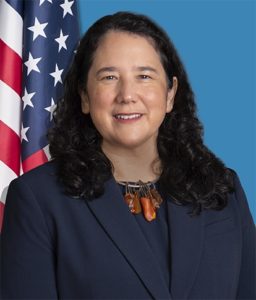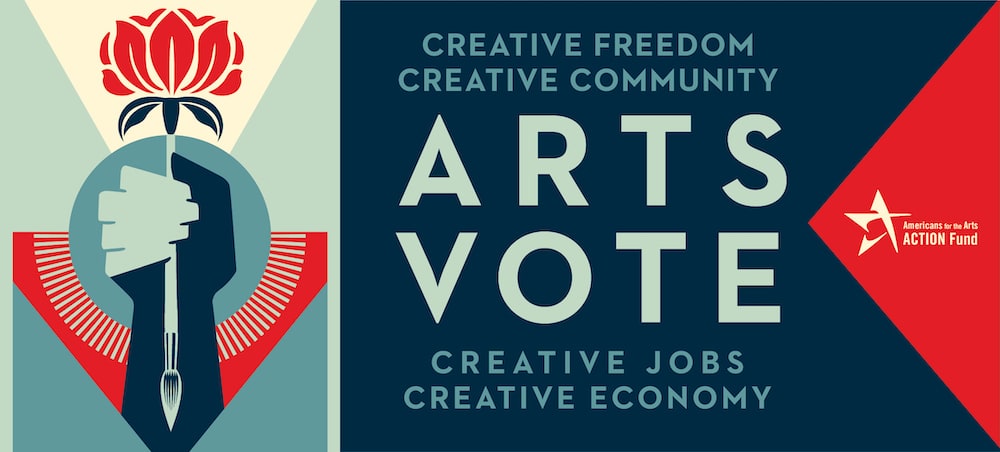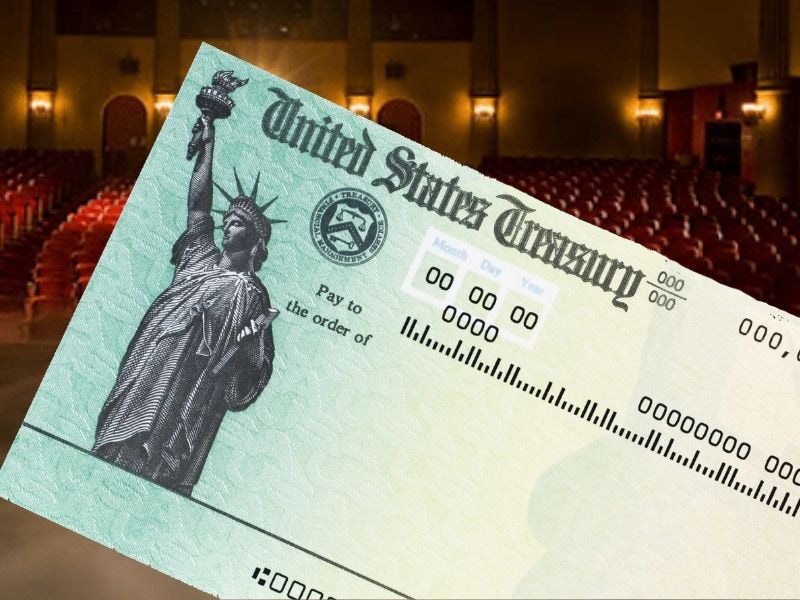UPDATE: The U.S. Small Business Administration has postponed relaunch of the problem-plagued Shuttered Venue Operators Grant (SVOG) application portal until Monday, April 26, 2021, at noon ET. Interested applicants should register for an account in advance through the portal.
-
- SVOG Application Portal (live on 4/24/21 @ 12:30pm ET)
- SVOG updated FAQs (as of 4/23/21)
- SVOG updated Checklist of Application Item (as of 4/23/21)
- SVOG updated Applicant User Guide (as of 4/23/21)
- Preliminary SVOG Application previewed to the Office of Management and Budget (as of 4/22/21)
- Technical Assistant-only for the Application Portal through SBA Call Center 1-800-659-2955. The call center is open today from 8 a.m. to 8 p.m. EDT and, starting Saturday, April 24, the center will be open 24 hours a day through Monday evening at 8 p.m. EDT. For application assistance, SBA recommends contacting one of their local assistance providers.
• • •
The Small Business Administration (SBA) is now headed by a confirmed Biden Administration appointee, Isabella Casilla Guzman—a development that will at last expedite rollout of the $15 billion Shuttered Venues Operators Grant program (SVOG).
The SBA is responsible for several critical COVID-relief programs of expected interest to the arts community, including SVOG and the Paycheck Protection Program.

“Help is here for venue operators hit hard by the COVID-19 pandemic,” said SBA Administrator Isabella Guzman. “The SBA knows these venues are critical to America’s economy and understands how hard they’ve been impacted, as they were among the first to shutter. This vital economic aid will provide a much-needed lifeline for live venues, museums, movie theatres and many more.”
A national Shuttered Venue Operators Grant informational webinar on the application process for potential eligible entities was recorded March 30 and can be viewed here.

Previous DCMTA reports on stimulus/relief funding for the arts are compiled below.
Originally published March 5, 2021, updated March 9, 2021
Federal rescue funding for shuttered venues remains stalled
The $15 billion grant program is not yet accepting applications, but there’s now more information about how to apply.
Originally published January 24, 2021
Biden Administration update on stimulus/relief bill
How much of $900 billion will go to theaters and individuals.
President Biden has announced his nomination of Isabel Guzman to lead the Small Business Administration (SBA), which is responsible for the $15 billion Shuttered Venues Operators (SVO) grants program (see below: “The new stimulus/relief bill: What’s in it for you?”). Guzman is currently director of California’s Office of the Small Business Advocate. Her authority will include development of guidelines and regulations necessary to implement the SVO program. Guzman has been a member of the Biden Transition Team for the Small Business Administration.
Until Guzman is confirmed by the Senate, President Biden announced January 20, 2021, that Tami Perriello will be the Acting Head of the SBA. Scott Harriford has taken the position as the new liaison between the White House and the Small Business Administration. The SBA Office of Disaster Assistance is expected to administer the SVO Grants.
https://youtu.be/PdfQGb6z-gg
A 13-minute video webinar overview of the SVO was held on January 15, 2021. Since that webinar, the SBA has provided updated written guidance on its website.
On January 28, 2021, the SBA posted answers to frequently asked questions about the SVO Grant program, in a download available here.
• SVO Priority Awards are no longer limited to shuttered venues with 50 employees or fewer. Priority awardees will not need to satisfy the small employer set-aside. During the first 59 days of opening the SVO Grants, SBA will reserve no less than $2 billion of program funding for grants to entities that have no more than 50 employees.
• An SVO Grant recipient cannot also receive a PPP (Paycheck Protection Program) Loan and vice versa, PPP bank loan offers remain open for 10 days before the bank offer is rescinded.
Originally published December 29, 2020
The new stimulus/relief bill: What’s in it for you?
With the $900 billion coronavirus-relief stimulus bill finally signed December 27, our readers are wondering: What’s in it for the theater community? And what’s in it for individuals? We will highlight responses to those two questions in this article. As with any legislation, the devil is not only in the text or even the provisions, but in how they might be implemented by regulations or grant announcements at Federal, state, and local levels. So we will continue to follow implementation of the new legislation over the next days, weeks, and months and report back to you.
What’s in the stimulus legislation for performing arts organizations?
Contained in the $900 billion stimulus bill are critical provisios to dedicate $15 billion in funding nationally for “Grants for Shuttered Venue Operators.” These grants are tucked into a larger section titled “Continuing the Paycheck Protection Program and Other Small Business Support.”
The $15 billion grant program will be under the administrative purview of the Small Business Administration (SBA). The program is not only for live theater venues such as members of theatreWashington or Broadway houses. There is a broad array of persons and entities eligible to apply. They include live venue operators or promoters, theatrical producers, live performing arts organization operators (music venues), museum operators, motion picture theater operators, and talent representatives who demonstrate a 25 percent reduction in revenues. Other arts entities with an interest in the $15 billion were hightlighted in this recent Washington Post article.
The legislation provides further guidance to the SBA:
- The SBA may make an initial grant of up to $10 million to an eligible person or entity and a supplemental grant that is equal to 50 percent of the initial grant.
- Such grants shall be used for specified expenses such as payroll costs, rent, utilities, and personal protective equipment.
- The SBA is required to conduct increased oversight of eligible persons and entities receiving these grants and must submit a report on the oversight to Congress.
For DC-area persons or entities interested in applying for the new funds, there are these legislative provisions to be aware of as well:
- $2 billion of these funds are reserved for entities with 50 or fewer full-time employees.
- Grant amounts are based on 45 percent of the recipient’s 2019 gross earned revenue.
- Eligible theater and museum entities are those that have lost at least 25 percent of their revenues during the pandemic.
- The initial grant can total up to $10 million per eligible business; a second grant, worth half the amount of the first, may also be available.
- During the first 14 days of the program’s implementation, grants will be awarded to those entities that have faced 90 percent revenue losses; then during the next two weeks, those that have experienced at least 70 percent revenue losses will be eligible; after the first month of the program, any other eligible businesses can receive grants.
Application details regarding the $15 billion will be the responsibility of the SBA. And SBA senior poliical officials are expected to change after President Biden’s inauguration at noon January 20, 2021.
Beyond the $15 billion dedicated to the arts, there are also funds that arts entities should be aware of including about $284 billion to the U.S. Small Business Administration for Paycheck Protection Program forgivable small business loans as well an allocation of $20 billion to provide Economic Injury Disaster Loans (EIDL). In addition, $12 billion is to be set aside to help businesses in low-income and minority communities.
Implementation guidance related to the dedicated $15 billion and other funds can be found on the SBA website.
What’s in the new legislation for arts workers and their families?
The new stimulus bill contains a number of provisions aimed directly at individuals and families well beyond the dedicated $15 billion:
- $166 billion for economic impact payments of $600 for individuals making up to $75,000 per year and $1,200 for married couples making up to $150,000 per year, as well as a $600 payment for each child dependent. (As of this writing, the House has sent to the Senate a measure to raise each such $600 payment to $2,000. Whether the Senate will consider it is uncertain.)
- $120 billion to provide workers receiving unemployment benefits a $300 per week supplement from Dececember 26 until March 14, 2021. This bill also extends the Pandemic Unemployment Assistance (PUA) program, with expanded coverage to the self-employed, gig workers, and others in nontraditional employment, and the Pandemic Emergency Unemployment Compensation (PEUC) program, which provides additional weeks of federally funded unemployment benefits to individuals who exhaust their regular state benefits.
- $25 billion in emergency rental aid and an extension of the national eviction moratorium through January 31, 2021.
- $13 billion for emergency food assistance, including a 15 percent increase for six months in Supplemental Nutrition Assistance Program benefits.
- $10 billion in child-care assistance.
In addition, the new legislation contains $45 billion in transportation funding, including $14 billion for transit systems such as Metro, which is considering service cuts on late nights and weekends. There are also budget increases for the National Endowment for the Arts (NEA) and the National Endowment for the Humanities (NEH).
SEE ALSO:
Long-awaited government relief package includes $15 billion to Save Our Stages
No way! New threat to DMV theaters: drastic Metro service cuts





